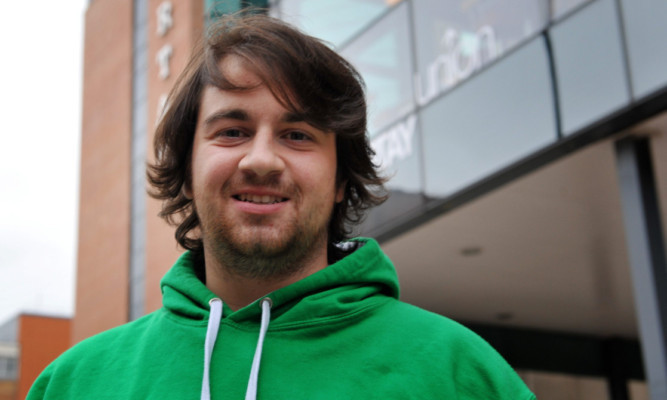Abertay University is to disband one of its five schools and disperse its staff and students.
The school of engineering, computing and applied mathematics (Secam), which pioneered the development of ethical hacking in computer security, will disappear before the start of the new term.
No job losses are expected but the announcement has sparked concern among students and academic staff.
Announcing the change, Abertay principal Professor Nigel Seaton said it would help the university to achieve it strategic objectives, be more sustainable and better exploit synergies between academic areas.
He said: “The plan involves transferring certain academic activities and their associated academic staff to new permanent homes in other schools, creating a more balanced structure of four academic units instead of the current five units of greatly varying size.
“As part of this reorganisation, Secam will be disbanded as an academic grouping.”
Maths and programming will be moved to the Institute of Arts, Media and Computer Games, while web design, databases and information systems will join the Dundee Business School.
Computing, mobile, security, engineering and interaction design and systems biology will transfer to the school of contemporary sciences.
Professor Seaton said: “In general, academic staff responsible for teaching particular courses will move with those courses to their new homes and support staff will be reassigned as appropriate.
“Staff to be transferred will be notified in the near future and it should be clearly understood that the university is not planning for any redundancies as part of this reorganisation.
“The new structure will underpin the university’s new research and knowledge exchange strategy, aligning our academic strengths and expertise more closely with the opportunities and objectives identified in the strategy.”
A university spokesman said the change was expected to be in place for the start of the 2013/14 term.
Abertay students’ association president William Mohieddeen said: “We are concerned about the academic implications this administrative decision will have and how this decision was made.
“After Secam’s launch in May 2012, we welcomed the innovative approach to teaching that would take place, particularly taking full advantage of the potential of the Scottish four-year degree.
“The Secam programme appears to be a success story and does great work in allaying student drop-out.”
He said the school also had a strategy for increasing female participation in science, technology, engineering and maths (Stem) subjects, something the association was keen to see continue.
“There are a number of important issues that need to be addressed,” he added. “We will be looking to the university to reassure us that Secam’s successful learning environment won’t be adversely affected.
“We would also expect that the widening access strategy will be protected and that activities which encourage women’s participation in Stem aren’t threatened.
“It is concerning that students have had no input into this decision,” he said.
Dr Andy Samuel said the Abertay branch of the UCU, the lecturers’ union, was concerned at the lack of consultation before the announcement.
“It came out of the blue for us and we are hoping to have discussions with management about the ramifications, especially for the staff involved.”
